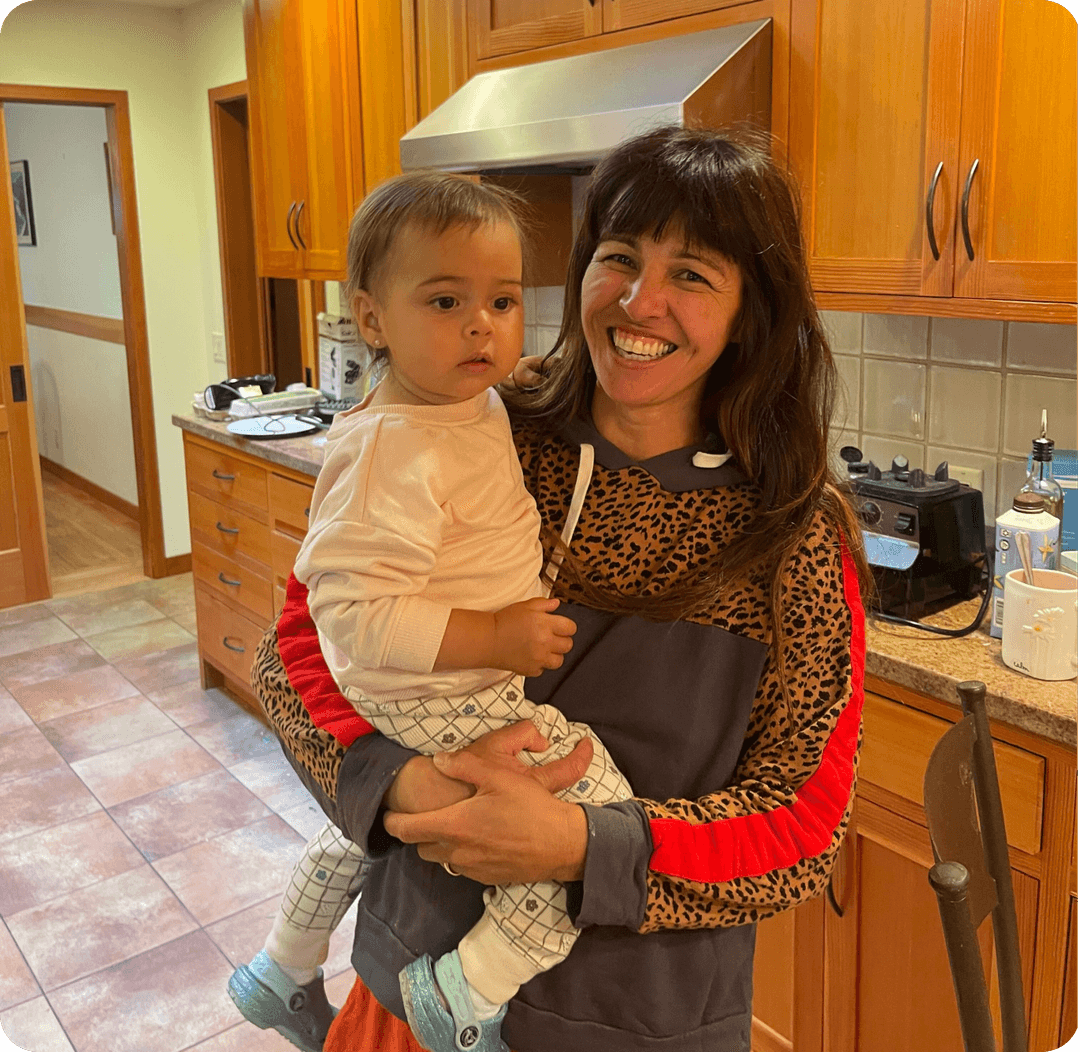Spanish-Language Support Helps Sandy and Her Toddler Thrive with CareVox's AI

Sandy faced issues with sleep disturbances, anxiety, and managing her daughter's developmental transitions. By delivering personalized, empathetic support in Spanish, Call-E helped Sandy implement effective sleep routines, reduce anxiety, and improve her parenting confidence.
This case study demonstrates the impact of AI in patient support, especially in non-English speaking communities.
The Challenge
Sandy, a mother of a toddler, was struggling with various challenges, including disrupted sleep, increased anxiety, and the complexities of managing her daughter's developmental milestones. Language barriers further compounded these issues, making it difficult for Sandy to access consistent support and guidance.
The Solution
CareVox deployed Call-E, an AI-driven virtual assistant, to provide regular check-ins and personalized guidance in Sandy's native language, Spanish. Through consistent communication, Call-E offered actionable advice on sleep routines, emotional well-being, and parenting strategies, tailored specifically to Sandy's circumstances.
The Results
80% Improvement in Sleep Quality
Sandy experienced significant improvements in her sleep quality, thanks to the bedtime routines suggested by Call-E.
Reduced Anxiety Levels
With the help of Call-E's relaxation techniques and empathetic support, Sandy's anxiety levels decreased markedly over the three-month period.
Increased Parenting Confidence
Sandy's ability to manage her daughter's developmental transitions improved, leading to a more stable and confident parenting experience.
Why CareVox
CareVox’s AI, available in multiple languages including Spanish, provides a human-like interaction experience tailored to individual patient needs. This ability to deliver culturally and linguistically appropriate support is critical in ensuring all patients receive the care they deserve.
Connect with us for a Pilot
Connect with us today to explore how a pilot with CareVox can create a meaningful impact for your patients. Together, we can redefine the future of healthcare.Patient Journey with Call-E
3-Month Progress Timeline
Month 1
Month 2
Month 3
Outcome After 3 Months
This 12-week plan includes an initial assessment of Sandy’s challenges, followed by regular check-ins at Weeks 3, 6, and 9 to monitor progress and adjust strategies. The final call in Week 12 reviews her progress and prepares her for a follow-up with Dr. Sam.
1. Improvement Observed
- Sandy feels less anxious, more rested, and better equipped to handle Penelope’s needs. Penelope’s improved sleep routine contributes to a more balanced and harmonious household.
2. Progress Analysis
- By Month 3, Penelope's sleep had significantly improved. Initially, frequent nighttime awakenings due to teething and other developmental changes disrupted both her sleep and Sandy's. However, by the end of the three-month period, these disruptions decreased, and Penelope’s sleep routine stabilized. This improvement in Penelope's sleep was a crucial factor in the overall positive progress observed during the case study, leading to more restful nights for both Sandy and Penelope
3. Next Steps
- Call-E provides a comprehensive summary to Dr. Sam, ensuring the progress over the past three months is considered in Sandy's follow-up care.
Progress Analysis
Over the three-month period, there was significant progress in Sandy's ability to manage both her own well-being and her toddler Penelope's developmental transitions. The following is an analysis of the progress made during the case study:
Sandy’s Experience: Rating Call-E’s Support in Spanish
As part of Sandy's journey, she rated her experience with Call-E based on several key evaluation categories, comparing the AI assistant with interactions from human nurses. Sandy communicated with Call-E in Spanish (Latin American dialect), which contributed to the personalized, compassionate support she received.
Why Spanish Language and Dialect Matter
By providing support in Spanish (Latin American dialect), Call-E ensured clear, culturally sensitive communication. This enhanced Sandy’s experience and made her feel more comfortable and understood throughout the process. This case illustrates the importance of multilingual support in healthcare, ensuring that all patients, regardless of language, receive empathetic, personalized care.
Sandy’s feedback highlights the strengths of CareVox’s AI assistant in delivering compassionate, effective care, building trust, and enhancing patient outcomes.
| Evaluation Category | Patients Rating Call-E | Patients Rating Human Nurses |
|---|---|---|
SATISFACTION | ||
| Rate the quality of interaction with Call-e from 1 (poor) to 10 (excellent) | 88% | 83% |
| Are you likely to seek advice from Call-e in future scenarios? | 89% | 86% |
Emotional Intelligence | ||
| Is Call-e capable of identifying and responding to the emotional state of patients? | 84% | 81% |
| Did you feel that Call-e was compassionate towards your situation? | 83% | 79% |
| Was there a sense of trust established during your interaction with Call-e? | 87% | 83% |
| How well did Call-e personalize the interaction? | 85% | 82% |
EDUCATION | ||
| How informative was Call-e regarding your health condition? | 92% | 89% |
| Did the information provided by Call-e enhance your ability to manage your health? | 90% | 87% |
| Did Call-e address all necessary points during the call? | 89% | 86% |
